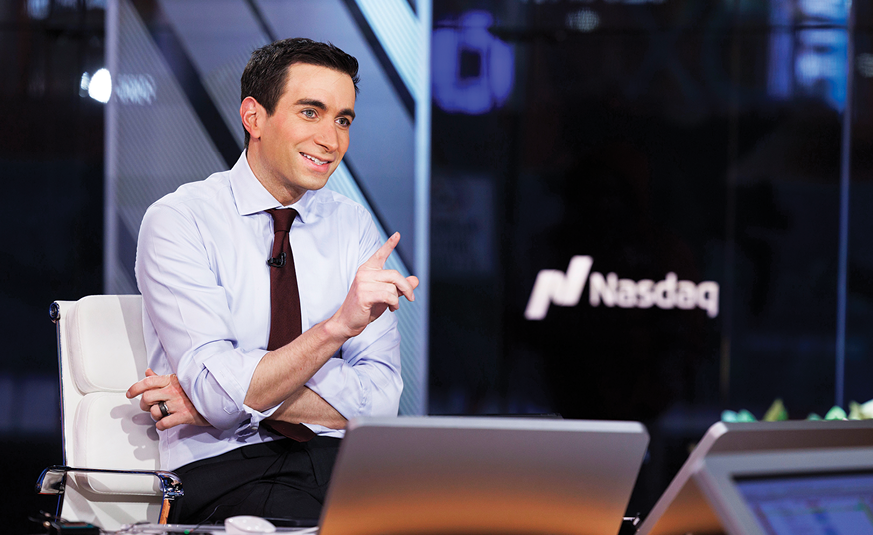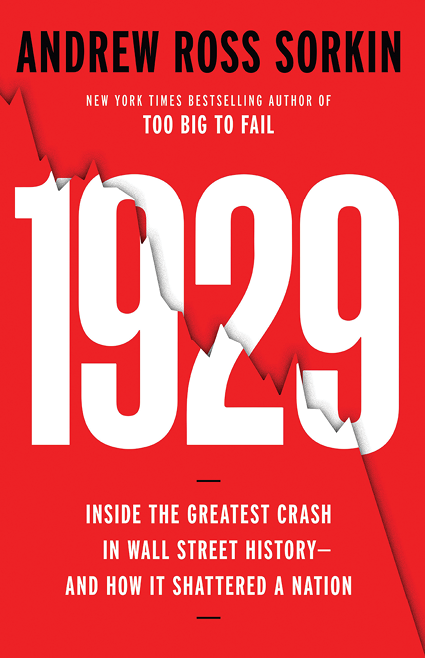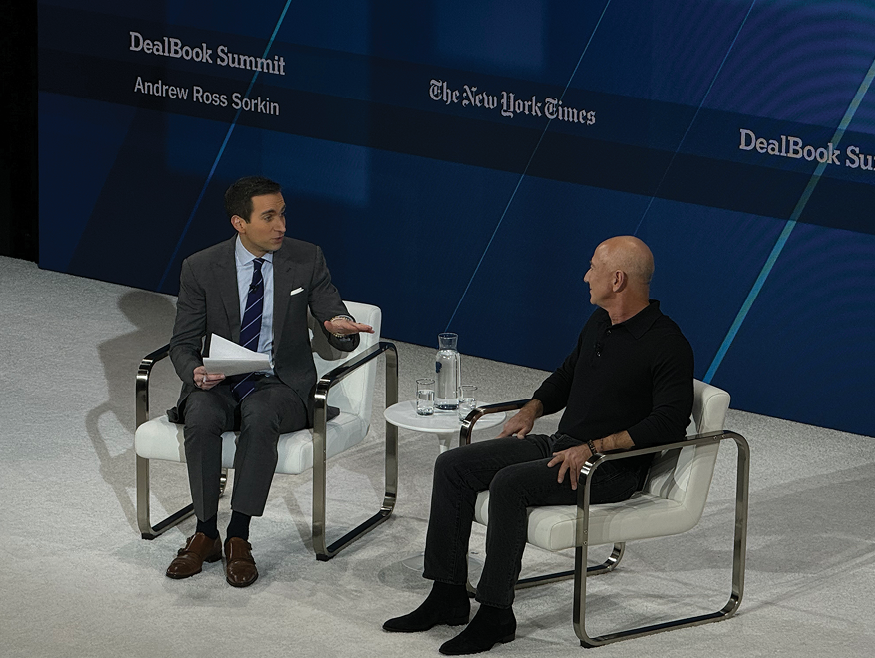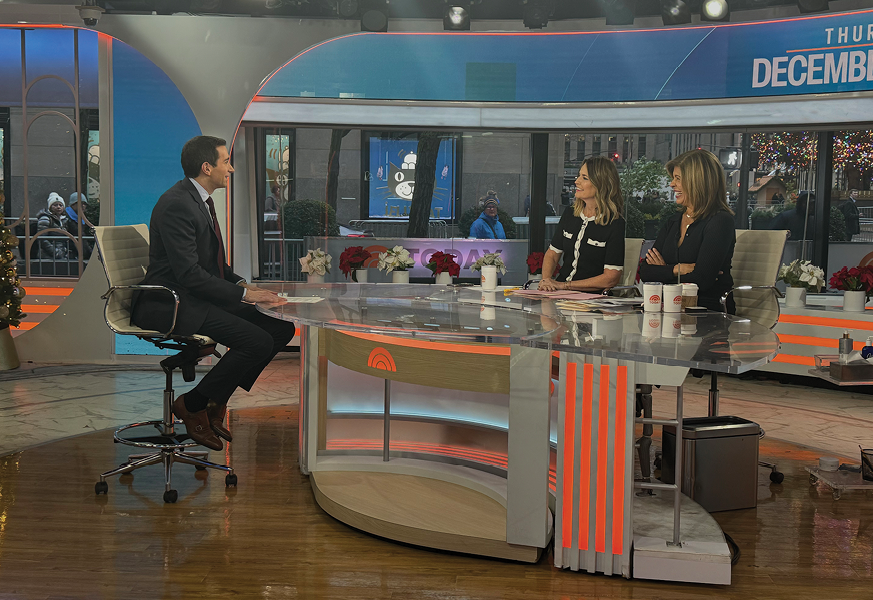- Home
- Media Kit
- MediaJet
- Current Issue
- Past Issues
- Ad Specs-Submission
- Reprints (PDF)
- Photo Specifications (PDF)
- Contact Us
- PRIVACY POLICY
- TERMS OF USE
![]()
ONLINE
![]()
ONLINE

Telling The Story
Of Money
Editors’ Note
Andrew Ross Sorkin is a distinguished financial journalist, best-selling author, and television anchor, widely recognized for his influential voice in global business and economic discourse. He serves as co-anchor of CNBC’s flagship morning program, Squawk Box, and is a longtime financial columnist for The New York Times, where he is also the founder and editor-at-large of DealBook, a pioneering digital financial news service. Sorkin is the author of the critically acclaimed book, Too Big to Fail, a definitive chronicle of the 2008 financial crisis, which was adapted into an Emmy-nominated HBO film. He is also the co-creator of the hit Showtime series Billions, which explores the power dynamics of Wall Street and high finance. His latest book, 1929, is an in-depth exploration of that year’s infamous financial crash. A graduate of Cornell University, Sorkin began his career at The New York Times as a high school intern and has since become one of the most respected voices in financial journalism. His work has earned numerous accolades, including a Gerald Loeb Award and recognition from the Cable Hall of Fame.

Squawk Box co-host Andrew Ross Sorkin shares how his
relentless curiosity has helped him in his career as a journalist
Will you discuss your career journey?
When I was 15, I started a sports magazine at my high school – not because I was especially interested in journalism, but because I was fascinated by media and publishing. I was drawn to the business side: reaching an audience, selling ads, building something from nothing. That little magazine unexpectedly led to an internship at The New York Times when I was 18. I worked for Stuart Elliott, the advertising columnist. I assumed I’d spend the summer making photocopies and fetching coffee. But somehow, it turned into much more.
Did you know early on that you wanted to pursue a career in journalism?
Not at all. I assumed I’d go to business school or law school after college. But that internship at The New York Times evolved into a part-time job while I was still at Cornell, and I just kept going. I was hooked. I started covering mergers and acquisitions in the late ’90s, right in the middle of the boom. That’s when I realized that if you could tell the story of money, you could explain everything – politics, art, sports, philanthropy, culture. And I was drawn to the characters: larger-than-life people doing fascinating things. That curiosity eventually led me to write Too Big to Fail, then produce the film adaptation, and later co-create Billions, a fictional series rooted in that world.

What has made Squawk Box work so well?
Squawk Box just celebrated its 30th anniversary. I joined in 2011, so I can’t take credit for its remarkable legacy. But I think what has always made it special is the animating idea behind the show: we’re all waking up together, trying to make sense of the news in real time – often by speaking directly with the people making the headlines. That’s an extraordinary thing to witness live. We’ve interviewed virtually every major CEO, entrepreneur, and political leader – including U.S. presidents – during the most consequential moments of their lives. And between Joe, Becky, and myself, we bring different perspectives and backgrounds, which shapes the kinds of questions we ask.
How did DealBook come about, and how do you define its mission?
I had just finished a stint covering mergers and acquisitions for The Times in London and had returned to New York. As I met with lawyers, bankers, and CEOs, I realized we were all doing the same thing – chasing facts across the internet, piecing together the day’s most important business news. This was before blogs, newsletters, or aggregation services. So I thought: what if I pulled it all together in one place for decision-makers? That was the original idea. Since then, DealBook has evolved dramatically. Today, we have over a million readers a day, and we host the DealBook Summit – a live event that brings the page to life with deep, candid conversations featuring the most consequential figures of the year.

Andrew Ross Sorkin interviews Jeff Bezos at the DealBook Summit 2024
What interested you in writing the book, 1929, and what are the key messages you wanted to convey?
After writing Too Big to Fail about the 2008 financial crisis, I felt I should better understand the most infamous crash of all: 1929. Most of us know it led to the Great Depression, but beyond that, the details are hazy. I read a ton of books on the subject but was yearning for something more. I wanted to read a behind-the-scenes, character-driven narrative – an inside-the-room account of the people at the center of it. What were they thinking? What drove their decisions? What incentives shaped their actions? So, I wrote it. I approached it as a human drama. I wanted it to read like a novel, but be grounded in fact, so anyone could engage with it – understand it, relate to it, and learn from it.
“Everything comes down to one word: trust. You either have it or you don’t. And while it can take years to build, it can vanish in an instant.”
What made this book different – and especially challenging – was the way it had to be built: from fragments. Virtually no scene came from a single source. Each moment in the book had to be pieced together from diaries, memos, letters, transcripts – bits scattered across archives all over the country. Early on, archivists told me it couldn’t be done, that there wasn’t enough connective tissue to tell a granular, cinematic story.
The biggest surprise was how eerily similar the 1920s felt to today. It’s a cliché, but history really does rhyme. The book offers lessons – about leverage, hubris, the seduction of wealth, and the psychology of crowds. I hope every reader takes away a gem or two that resonates.

Andrew Ross Sorkin joins NBC’s Today show
for a live conversation
What do you feel are the keys to effective leadership?
Everything comes down to one word: trust. You either have it or you don’t. And while it can take years to build, it can vanish in an instant. From observing and spending time with some of the most respected leaders of our time, I’ve come to believe that the key trait they share is clarity of vision. They absorb feedback, listen carefully, but never lose sight of their core mission. They say “no” often – and that willingness to say no is a kind of superpower. And they are endlessly curious.
What advice do you offer to young people beginning their careers?
Persistence matters more than talent. The people who keep knocking on the door – who find a way in, no matter how small – are the ones who win. Find people you admire and study them. Reach out to them. Ask questions. Build relationships. The people who keep showing up, again and again, tend to break through.![]()